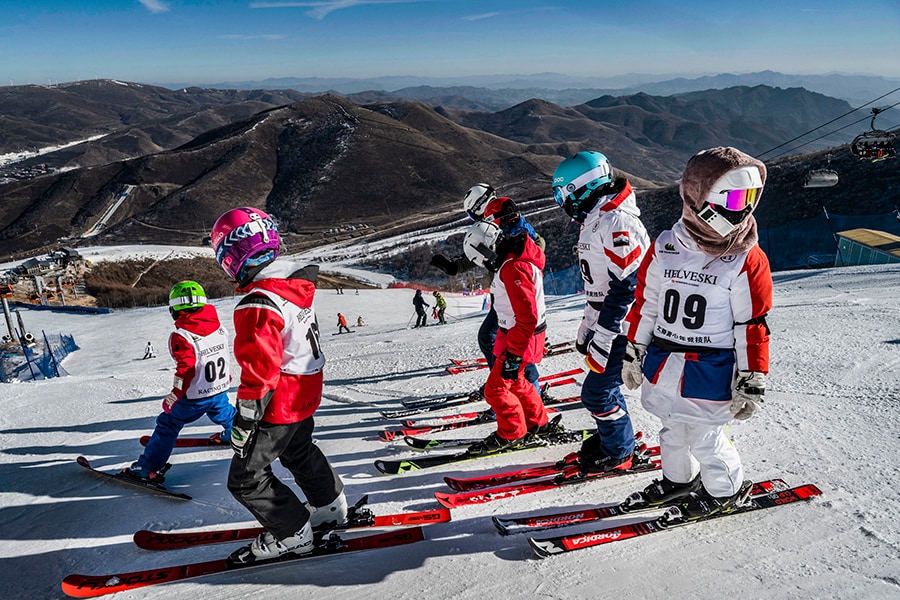
China's Games: How Xi Jinping is staging the Olympics on his terms
China no longer needs to prove its standing on the world stage; instead, it wants to proclaim the sweeping vision of a more prosperous, more confident nation under Xi, the country's most powerful leader since Mao Zedong
 Young Chinese ski racers stand at the top of the Thaiwoo Ski Resort before it closed for the Beijing 2022 Winter Olympics, in Chongli county, Zhangjiakou, Hebei province, northern China. The area, which will host ski and snowboard events during the Winter Olympics and Paralympics was closed off to all tourists and visitors as of January 4, 2022 and will be part of the bubble due to the global coronavirus pandemic for athletes, journalists and officials taking part in the games. The Beijing 2022 Winter Olympics are set to open February 4th. (Photo by Kevin Frayer/Getty Images)
Young Chinese ski racers stand at the top of the Thaiwoo Ski Resort before it closed for the Beijing 2022 Winter Olympics, in Chongli county, Zhangjiakou, Hebei province, northern China. The area, which will host ski and snowboard events during the Winter Olympics and Paralympics was closed off to all tourists and visitors as of January 4, 2022 and will be part of the bubble due to the global coronavirus pandemic for athletes, journalists and officials taking part in the games. The Beijing 2022 Winter Olympics are set to open February 4th. (Photo by Kevin Frayer/Getty Images)
When the International Olympic Committee met seven years ago to choose a host for the 2022 Winter Games, China’s leader, Xi Jinping, sent a short video message that helped tip the scale in a close, controversial vote.
China had limited experience with winter sports. Little snow falls in the distant hills where outdoor events would take place. Pollution was so dense at times that it was known as the “Airpocalypse.”
Xi pledged to resolve all of this, putting his personal prestige on what seemed then like an audacious bid. “We will deliver every promise we made,” he told the Olympic delegates meeting in Malaysia’s capital, Kuala Lumpur.
With the Games only days away, China has delivered. It has plowed through the obstacles that once made Beijing’s bid seem a long shot and faced down new ones, including an unending pandemic and mounting international concern over its authoritarian behavior.
As in 2008, when Beijing was host of the Summer Olympics, the Games have become a showcase of the country’s achievements. Only now, it is a very different country.
©2019 New York Times News Service







